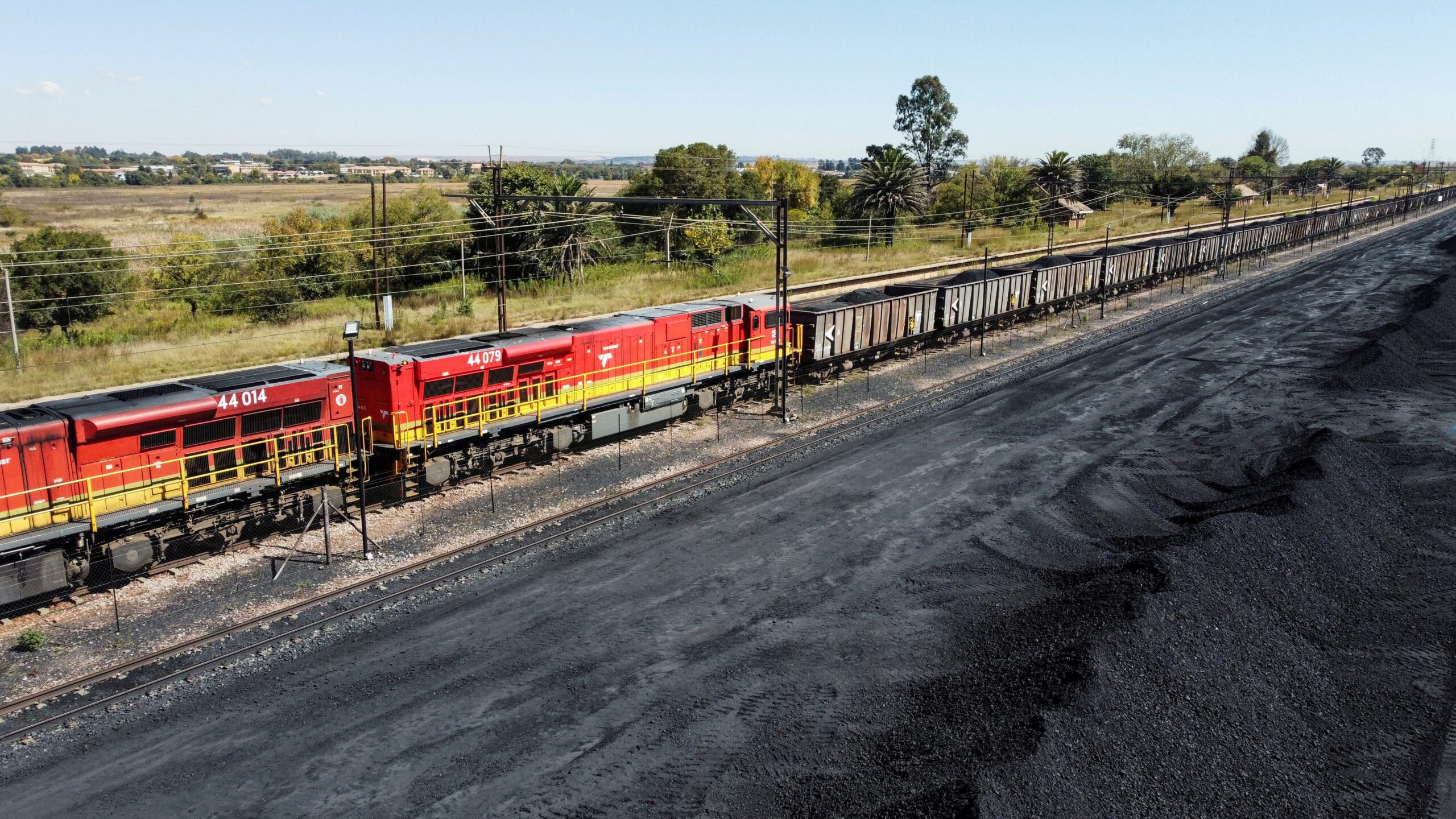
South Africa has taken a major step toward privatizing its rail system, granting licenses to 11 private companies to operate freight services on the national network.
The 10-year licenses, issued by state logistics firm Transnet, are expected to add 20 million tons of annual freight capacity from the 2026-27 financial year, supporting the country’s goal of hauling 250 million tons by 2029.
The move comes amid growing pressure from mining companies frustrated by capacity constraints and reliability issues on the state-run rail system.
South Africa, one of the world’s top producers of platinum, gold, and manganese, relies heavily on efficient rail infrastructure to maintain export competitiveness.
Transnet has simultaneously partnered with major mining firms to modernize rail operations.
In August, it signed an agreement with Exxaro Resources to enhance rail links from the Leeuwpan coal operation in Mpumalanga to export markets, supporting the company’s target of selling 42.4 million tons of coal this year, including 7.2 million tons internationally.
United Manganese of Kalahari secured a separate 10-year transport deal in July to move manganese from Northern Cape mines to ports, aligning with South Africa’s forthcoming Critical Minerals Strategy, which aims to capitalize on rising global demand for battery metals and other strategic resources.
The rail sector has received significant financial backing from both government and international lenders. In July, authorities approved an additional 94.8 billion rand for Transnet, following a 51 billion rand package in May. Development banks have also committed substantial support, with the New Development Bank providing $278 million and the African Development Bank approving $1 billion for logistics upgrades.
The licensing initiative, the largest opening of South Africa’s rail network since the end of apartheid, aims to attract private investment and improve service quality in a sector long dominated by state enterprises. Rail transport offers cost advantages over road haulage for bulk commodities, making the reforms especially attractive to mining firms facing rising operational costs and volatile commodity prices.
Industry analysts say the success of this privatization effort could serve as a model for other African countries, where inadequate transport infrastructure often limits mineral development and export growth despite abundant natural resources.
The reforms and their impact on the mining sector will be closely examined at African Mining Week in Cape Town from October 1-3, where leaders will assess the continent’s readiness for expanding mineral trade.



